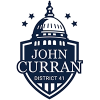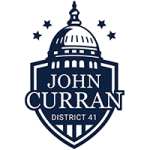Governor’s Office Daily COVID-19 Q & A
March 22, 2020
CMS
Q: Is CMS working to extend the deadlines for verification of dependents?
A: The deadline for the Phase 2 Dependent Eligibility Verification Audit (DEVA) for the State Group Health Plan, which was April 2, has been extended to April 25. Phase 2 is for current State employees.
CMS Benefits is encouraging those (State employees) in Phase 2 of the Dependent Eligibility Verification Audit (DEVA) to complete the DEVA if they are able. Individuals can take a photo of the required documents with their smartphone and upload it within 3 minutes.
The earliest any terminations would occur is May 1. Even then, individuals have the ability to add a dependent back onto their Plan with no break in coverage through May 24.
CMS Benefits will continue to monitor and make changes to deadlines as needed.
Note: CMS Benefits has already made the decision to delay any terminations from Phase 1 (Non-MAPD retirees and survivors), which were scheduled to be terminated April 1. A letter is being sent out to those individuals to let them know that the Phase 2 deadline has been extended to May 1. For further information please review state benefits on the CMS website: https://www2.illinois.gov/cms/benefits/StateEmployee/Pages/StateInsuranceProgram.aspx
Higher Education
Q: How and when will students be refunded MAP dollars?
A: Students don’t receive MAP refunds. MAP is paid directly to the institution on behalf of the student and is applied to the student’s bill to cover tuition and fees only. That situation is no different this spring: Students were billed for tuition and fees, so schools claimed MAP on behalf of eligible students, and ISAC has submitted those claims to the State for payment to schools on the MAP-eligible students’ behalf.
Students may receive a check for Pell Grant or student loan funds if their total financial aid package exceeds their tuition and fees; those refunds are supposed to occur within 14 days of the credit balance occurring on the student’s bill.
Childcare
Q: A healthcare provider is looking to set up a temporary daycare location for their healthcare workers. Can they get any reimbursement for this from the State?
A: Per the Governor’s Executive Order 10, all child care programs are closed; however, home day care programs can care for up 6 children. Where possible, children should be kept at home.
The Governor’s Office of Early Childhood Development, in partnership with IDHS and IDCFS, has established a structure and system for child care providers to apply for an “emergency child care license” to provide care for essential workers. Please refer to the following link for additional resources:https://www2.illinois.gov/sites/OECD/Pages/For-Communities.aspx.
Liquor
Q: What will happen to liquor licenses that expire soon?
A: Due to the hardships on liquor license holders as a result of the COVID-19 virus outbreak, all licenses expiring on March 31, 2020, April 30, 2020, and May 31, 2020, are extended until July 31, 2020.
Illinois Department of Correction (IDOC)
Q: What is IDOC’s policy regarding librarians and teachers working in the facility?
A: Educational, clinical, and substance abuse programming are being provided on the housing units while correctional facilities are on administrative quarantine. The Department has instituted a programming plan that aligns with the CDC’s social distancing measures:
• Clinical and substance abuse programming is being provided on the housing units in groups of 10 or less.
• In lieu of classes, educators are providing students with daily packets.
• A box of books is being supplied to each housing unit weekly.
The Department is committed to providing men and women in custody with continued care and treatment during the COVID-19 crisis. We are taking proper precautions to ensure the health and safety of our staff by taking their temperature daily, screening for COVID-19 symptoms, increasing cleaning schedules, and providing hand sanitizer and antibacterial soap.
Q: Are IDOC inmates being tested upon release?
A: The Department is in close communication with IDPH to ensure we are following CDC guidelines on COVID-19 testing. We are taking the temperature of all individuals prior to their release. Individuals who present symptoms for COVID-19 are given a mask and instructions on proper protocol for seeking medical attention.
Housing
Q: Is there consideration for reimbursing local housing agencies for making arrangements out of current homeless prevention funds? Are there other plans for assisting with homelessness / those seeking shelter in places where shelters are no longer taking new clients?
A: Through local continuums of care, DHS is making $6 million available for isolation housing for those who are experiencing homelessness. Homeless service providers will also receive a 5% increase in funding. Visit the Department of Human Services for more information.
Safety Measures
Q: Office workers can work from home, but factory workers are not doing enough social distancing. Is there any way to protect workers who are afraid to go to work?
A: Per the Governor’s Executive Order 10, employees should be following social distancing requirements such as maintaining at least six-foot distancing from each other, washing their hands for at least 20 seconds with soap/water, and regularly sanitizing the work area. More information on necessary
precautions can be found here. Employees can also call DCEO’s helpline 1-800-252-2923 or CEO.support@illinois.gov to learn about business guidelines.
Business Compliance
Q: Is lawn care and landscaping, especially when serving a senior or vulnerable population, considered an essential business under the Executive Order-10?
A: Lawn care and landscaping workers are may qualify as essential works under the Governor’s Executive Order 10 and are encouraged to take the precautions stated by the Department of Public Health, such as the ability to wash or sanitize hands. For further guidance on business compliance, please call DCEO’s helpline 1-800-252-2923 or CEO.support@illinois.gov.
Q: Are car dealerships essential services?
A: Car dealerships may stay open for repair and parts. Car dealerships may also remain open by appointment for individuals who need to purchase a car for essential travel. Showrooms should be closed. For further guidance, please call DCEO’s helpline 1-800-252-2923 or CEO.support@illinois.gov.
Q: Is an in-home hair salon required to be closed?
A: Hair salons and barbershops are not considered essential businesses. These businesses should not be open to the public. For further guidance, please call DCEO’s helpline 1-800-252-2923 or CEO.support@illinois.gov.
Q: Can the Governor temporarily suspend the notice requirements of the Illinois Worker Adjustment and Retraining Notification (WARN) Act? This act requires that employers provide a 60-day notice when furloughing more than 25 employees at a given site (assuming those employees represent more than 33% of the full-time workforce at that site). We understand that the exceptions in the law do not cleanly apply to this situation, so relief from the act is necessary.
A: The WARN Act applies, but if employers are seeking an exception under 820 ILCS 65/15, they should provide IDOL with a written basis (admin rule 230.220) for why they are seeking a reduction in notice period and describe what notice period they want, including none. IDOL will then make an individual determination that we will make sure internally to expedite. Be sure to request the exception prior to the layoff.
Employers seeking an exception should contact Robert Parrilli, manager of the Conciliation and Mediation Division. His number is 312-793-3600. His email is robert.parrilli@illinois.gov.
Unemployment
Q: If a business decides to shut down voluntarily before mandated, will staff be able to qualify for unemployment? And does this go against the employer if they do so?
A: If a business decides to shut down, employees would be potentially eligible for benefits and are advised to open a claim as soon as possible. IDES is working with the Governor’s office on legislation that would remove charge ability to employers for claims involving COVID-19 related issues.
Q: What if an independent contractor or someone who files a 1099 tax form is not eligible for the state’s unemployment benefits, as a result of the Stay at Home order?
A: If someone has been found ineligible for benefits in the state’s unemployment insurance (UI) system due to a 1099/independent contractor issue, the next potential recourse could be a federal disaster unemployment assistance (DUA) program which is being discussed at the federal level. This type of program would pick up individuals like independent contractors and self-proprietors not normally covered by the state’s UI system.
Q: If an employer’s employee files for unemployment insurance benefits due to COVID-19, will the employer’s unemployment insurance taxes go up?
A: At this time, no further guidance has been issued. Until such time, normal procedures will be followed. In general, the contribution rate of an experience-rated employer is based, in part, on the amount of unemployment benefits paid to the employer’s former employees.
Q: Should employees file for unemployment insurance benefits if their hours have been reduced? For example, if an employee typically works 40 hours per week and their hours have been reduced to 20 hours per week due to COVID-19, can an employee file for unemployment insurance benefits for those 20 hours?
A: When someone files, their weekly benefit amount is determined using a formula, taking into consideration their base period wages. If someone is still working when they file, we have to determine how much they earned in a week. If the individual earned more than their weekly benefit amount in a week, they are not unemployed, so they are not eligible. If the individual earned some wages for part-time work, but the wages were less than their weekly benefit amount, they are eligible for benefits but some of those wages will offset their weekly benefit amount.
Transportation
Q: Pennsylvania has temporarily closed rest stops in response to COVID-19. Does the Governor’s Office plan to impose the same mandate in Illinois?
A: As of now, the Illinois Department of Transportation has no plans to close rest stops.
Q: Is there any way businesses such as doctors’ offices or bus transit systems can obtain protective equipment such as face masks, sanitizer wipes, etc. Is there anything the State can do to help these businesses and transit systems?
A: The Illinois Department of Transportation provides PPE for transit systems. Doctors’ offices should coordinate with their local public health department to request additional PPE.
Professional Licenses
Q: What if a Certified Registered Nurse Anesthetist (CRNA) that is eligible to retire in May 2020 does not want to complete the requirements to reinstate their license? Can these CRNA licenses be extended due to this crisis?
A: Any professional licenses issued by the Department of Financial and Professional Regulation (IDFPR) that have renewal dates between March 1, 2020, through and including July 31, 2020, are granted an automatic extension to renew to September 30, 2020. Additionally, all current licensees under the Department’s jurisdiction whose license renewal deadlines fall within the period beginning March 1, 2020, through and including July 31, 2020, shall have up to, and including, September 30, 2020, to complete their continuing education coursework.
Q: What is the license turnaround time for new medical professionals?
A: Prior to the COVID-19 changes, the Department’s turnaround time was approximately 9 days for a completed new license application. Like many others, IDFPR is working with limited staff, and delays may be expected for new license apps. The Department is prioritizing its healthcare professionals.
Q: Will all professionals have the authority to perform basic healthcare functions?
A: Professionals will maintain the ability to practice within their allowable scopes. The IDFPR has not taken any actions to amend professional scopes of practice.
Q: Are there limitations among the scope of practice?
A: No changes have occurred that amend any profession’s scope of practice.

